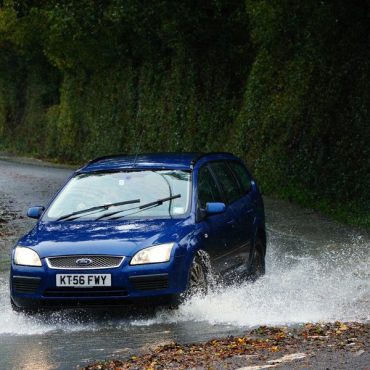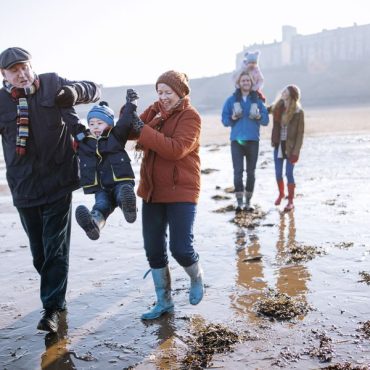Canada is a popular holiday destination known for its spectacular scenery, from beautiful coastlines to idyllic forests to snow-topped mountains; magnificent wildlife; national parks galore and friendly locals.
But before planning a trip to the North American destination, it’s important to stay up-to-date with the latest travel guidance. Britons planning a trip have been notified of a confirmed case of mpox.
The Foreign, Commonwealth and Development Office (FCDO) advised Britons to take some steps at least eight weeks before their trip.
They should check the latest vaccine recommendations for Canada, available at TravelHealthPro.

Britons should check the latest vaccine recommendations for Canada at TravelHealthPro
GETTY IMAGES
They should also see where to get vaccines and whether they have to pay for them. This information is available on the NHS travel vaccinations page.
Holudaymakers were also advised to check what health risks they’ll face in Canada, including biting insects or ticks and mpox.
Britons planning a trip should also see Canada’s Public Health Authority website which includes updates on mpox.
The FCDO added: “Altitude sickness is a risk in parts of Canada, including skiing and hiking destinations in the Canadian Rockies such as Banff and Lake Louise. Read more about altitude sickness on TravelHealthPro.”
Mpox in Canada
On November 22, 2024, one case of clade I mpox was confirmed in Manitoba, Canada.
The Public Health Agency of Canada (PHAC) explained that this case is associated with an ongoing outbreak of clade I mpox in central and eastern Africa. The individual sought medical care and is currently isolating.
A public health investigation is ongoing and PHAC is working closely with public health authorities.
Clade II mpox has been circulating in Canada since 2022, however, this is the first case of clade I mpox confirmed in Canada.
PHAC assured those in Canada that risk to the general population remains low but that it continues to actively monitor the situation.
Vaccination is not currently recommended for the general population but those who are at high risk of exposure are advised to get the vaccine.
PHAC stated: “Mpox is a viral infection that causes a painful rash. The rash can be accompanied by other symptoms such as fever, chills, headache, exhaustion, swollen lymph nodes and back, joint and muscle pain. In rare cases, it can be fatal.
“Mpox is contagious and people in close contact with individuals with mpox, especially those with visible lesions or symptoms, are at higher risk of infection. Children, pregnant people, and those with compromised immune systems, such as those living with HIV or other chronic conditions, are at increased risk of severe disease from clade I mpox.”
LATEST DEVELOPMENTS

Before travelling to Canada, Britons should consult the FCDO’s latest guidance
GETTY IMAGES
People can lower their risk of getting mpox by avoiding close physical, including sexual contact, with someone who has mpox or was exposed to mpox, plus contact with personal items or objects used by someone with mpox.
When travelling to countries experiencing outbreaks of mpox, holidaymakers should take measures outlined in the travel health notice to reduce their risk of catching it. They are advised to avoid contact with someone who has symptoms of mpox or who may have been exposed.
If you come into contact with someone who has or could have mpox:
- Monitor for symptoms
- Contact your healthcare provider and local public health unit for information on how to receive post-exposure vaccination. Ideally, you should receive the vaccine within four days of the last exposure, but it can be offered up to 14 days after the last exposure.
If you have symptoms:
- Isolate at home, ensuring you stay away from others
- Contact your healthcare provider
- When travelling, tell a flight attendant before you land or the border services officer as you enter the country. They will notify a quarantine officer who can take further action.
Anyone travelling to Canada should consult the FCDO’s up-to-date guidance. This includes guidance on the latest warnings and insurance, entry requirements, safety and security, health and getting help.













Post comments (0)